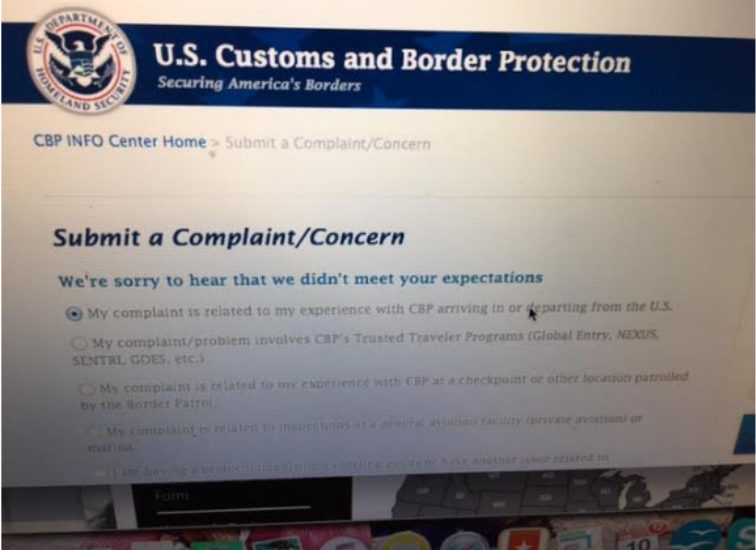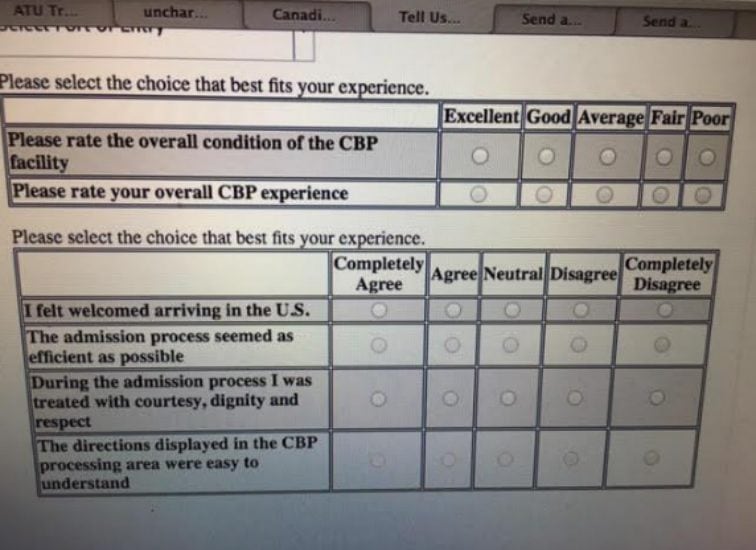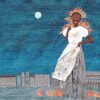KJIPUKTUK (Halifax) – The list of questions by the US Border guards were intrusive as well as discriminatory:
Do you wear the niqab?
Are you a practicing Muslim?
Which mosque do you go to and how often?
Do Moroccans like Americans?
Do you know any of the victims of the shooting at the mosque in Quebec City?
What do you think of Donald Trump’s policies?
These are some of the exact questions asked of three Canadian citizens denied entry to the US at two different border crossings in Quebec in the last week. Two were women, cousins who are Moroccan-Canadian, taking their two children on a shopping trip to Burlington, Vermont.
Eventually after being held for hours, with two young children, and despite travelling on Canadian passports, the women were told they could not enter the US because of prayer videos on one of their phones.
The third person was a 19-year-old Sherbrooke University kinesiology student. He was going to Boston with his team to compete in a track meet. Born in Canada, of Moroccan descent, the student proffered his Canadian passport, which is valid until 2026. But the US border officials denied him entry and, in an official letter, told him his papers were not in order.
At two different crossings, five days apart, the US border officials had the same drill. They demanded that the Canadians hand over their phones with their passwords.
In private, the officials then took their time flipping through the phones.
Then they interviewed the Canadians for hours, one on one—asking the questions mentioned above, and more.
Finally the officials fingerprinted them—as a routine humiliation.
After the fingerprinting (and God knows where the prints go), both the women and the young athlete were refused entry to the US.
The women returned to Brossard, Quebec, and complained to their Liberal MP. Ralph Goodale, Canada’s minister of public safety, on hearing their experience meekly stated that Canadian passports “need to be respected.” And that the women can “appeal through the normal processes.”
Let’s look at that process. Hmm. Seems that there is one question for people not happy with how they are treated. See figure 1 below.

On the other hand, the US Border agency welcomes the women to fill in a survey about their experience at the border and here it is—fig 2.

Well I suppose Ralph Goodale’s sputtering about filing a complaint will only go so far with this “sunny ways” Canadian government.
Trudeau has said nothing, and likely if he raises it at all on Monday during his visit with Trump — it will be the mildest of rebukes.
US apologists such as journalists Chantal Hebert and Jennifer Ditchburn on the At Issue panel on CBC-TV (the National, February 9) warned that Trudeau should not poke the “bear” – President Trump, for fear of setting him off. After all, the women argued, we need the US to trade with us. We can’t upset Trump.
This is reminiscent of what women say and do about abusive husbands. Don’t argue, don’t threaten, don’t make him mad. And we know that abusive husbands do kill their partners who speak up, especially when those partners threaten to leave the marriage.
Is that what is going on with the US? Must we walk on eggshells lest we set off Trump? To hell with civil liberties and human rights as long as we can keep NAFTA?
Now that’s what I call ‘free trade’.
Judy Haiven is a professor in the Management Department of St. Mary’s University and a social activist. She is the Chair of the Nova Scotia chapter of the Canadian Centre for Policy Alternatives.
Please support the Nova Scotia Advocate so that it can continue to cover issues such as poverty, racism, exclusion, workers’ rights, and the environment in Nova Scotia.




do i have to comment on my own story??
Judy Haiven sums this issue perfectly.
Where is the stand of our government in guarding the rights of Canadian citizens?
Is there no limit to this form of racism, discrimination and Islamophobia?
Brilliant, Professor Haiven! We have probably all been asked intrusive, irrelevant questions by border guards, but then to be denied entry — a shonda!